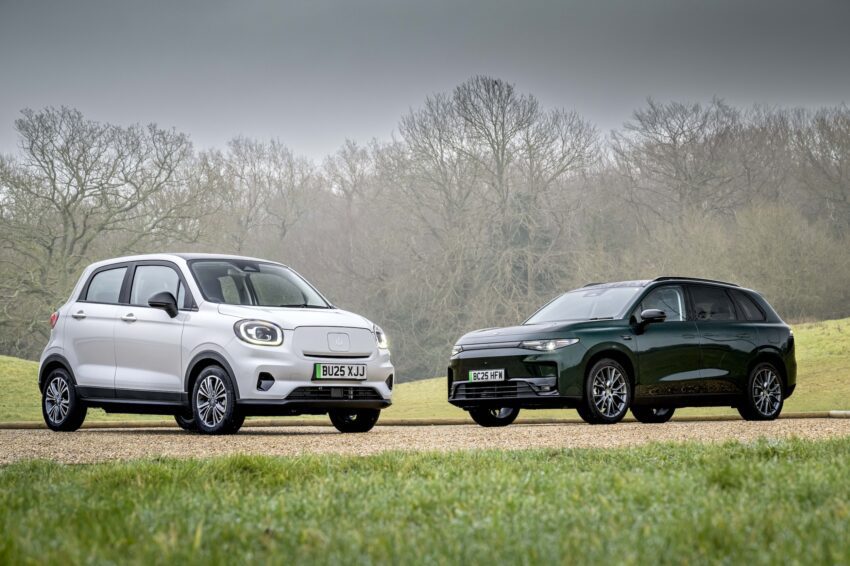
Leapmotor gets the jump on UK EV grant with £3,750 Leap-Grant
EV newcomer Leapmotor has launched its own Leap-Grant, offering up to £3,750 off its all-electric models.
The self-funded discount on its T03 and C10 models has come into effect immediately in what Leapmotor calls a “proactive” response to the ECG, which will not become fully operational until mid-August.
The Chinese budget brand, part-owned by European automotive giant Stellantis, said: “While the government’s upcoming EV grant scheme is a welcome step, consumers are still waiting to learn which vehicles will qualify, how much financial support will be available, and when the grants will take effect.
“This has left many potential car buyers in a state of limbo — unsure of when or how to take advantage of the promised incentives.”
In response, it has launched the Leap-Grant, which offers a £1,500 saving on the compact T03 city car, and £3,750 off the family-sized C10 SUV.
The move cuts the starting price of the T03 to £14,495, undercutting the Dacia Spring by £500 and making it the cheapest new electric car on sale.
The discount on the C10 brings Leapmotor’s Skoda Enyaq rival down to £32,750. Both cars are also being offered with 0% APR and a one-month deposit, meaning customers can secure a T03 on a PCP deal for £169 deposit and £169 per month, or a C10 for £319 per month.
“Our mission is to help make the leap to electric cars easy for UK drivers,” said Damien Dally, managing director of Leapmotor UK. “We’ve decided to act now because we want to give customers clarity, confidence, and immediate savings – and make the switch to electric a simple choice.”
Leapmotor says the Leap-Grant aims to bring immediate savings to drivers while details and applications for the government grant are still being thrashed out.
However, there are rumours that EVs built in China – such as the T03 and C10 – may only qualify for the lower £1,500 of government. One of the determining factors in which band of grant an EV will qualify for is its production carbon footprint. That is expected to benefit European manufacturers at the expense of Chinese and Korean-built models where the energy grid is more reliant on fossil fuels.
If that is the case, other budget EVs such as the Dacia Spring may also only qualify for the lesser grant, along with more expensive models such as the Mini Cooper and Kia EV3.